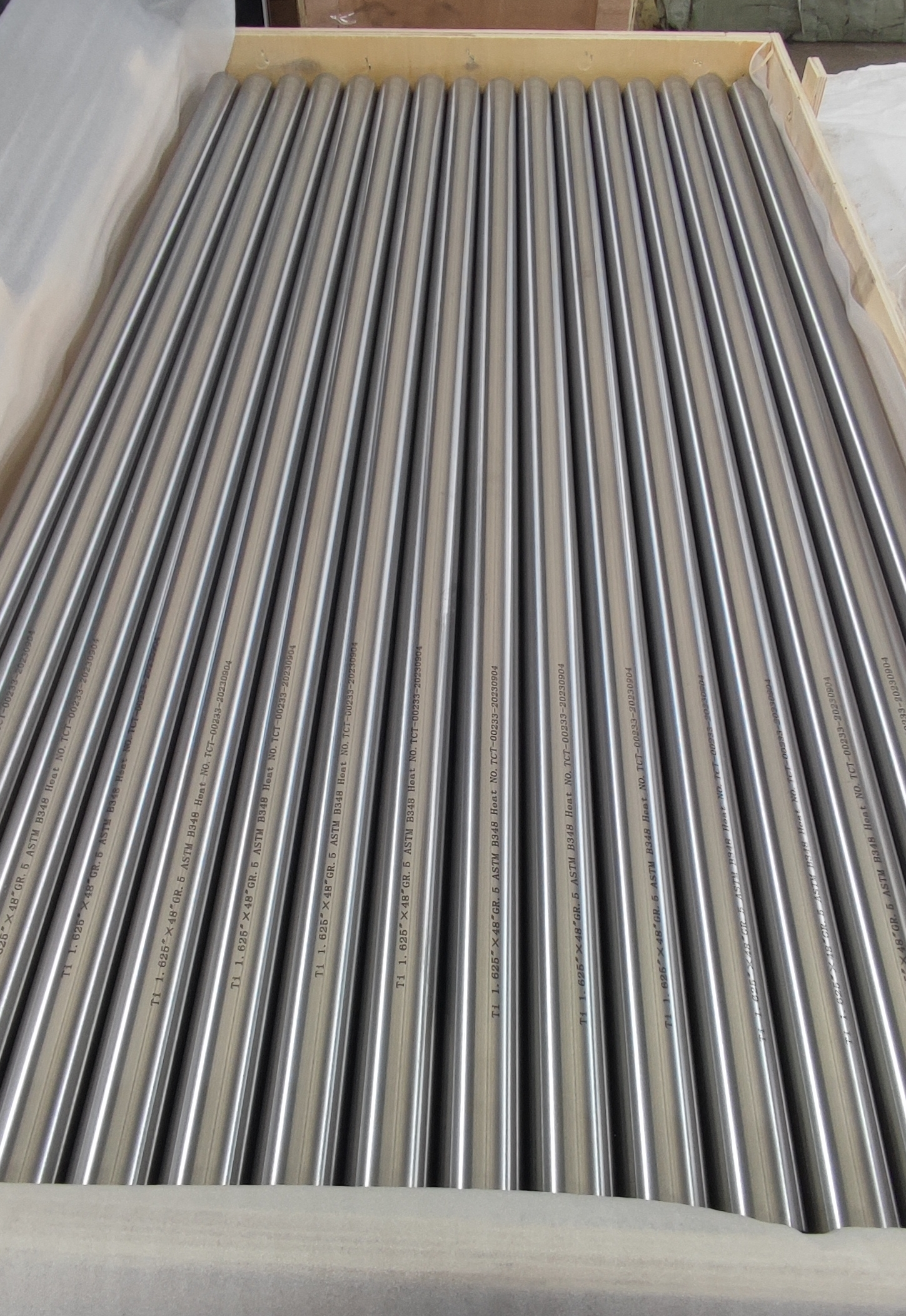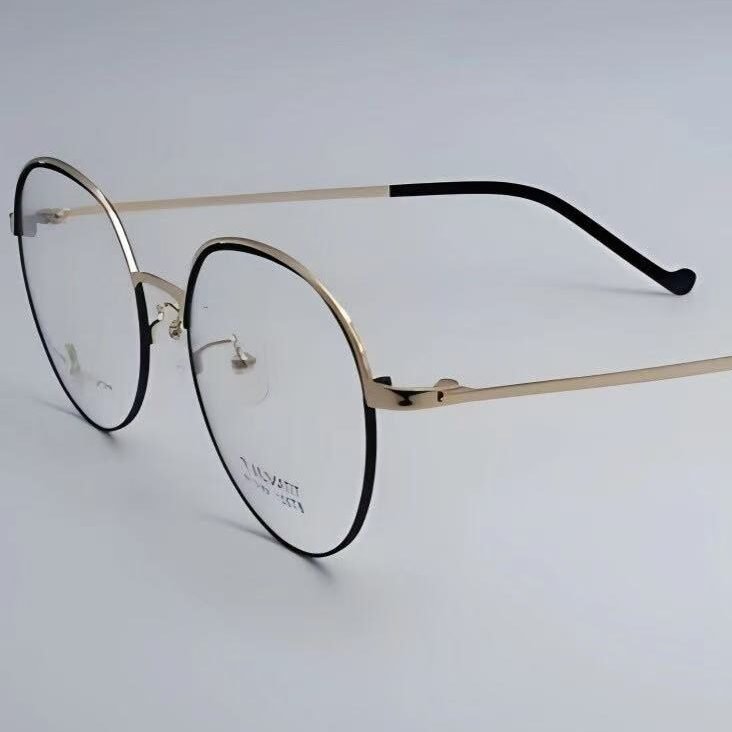In modern orthopedic surgery, evolving medical instruments enhance surgical precision and patient outcomes.Titanium alloys have become essential due to their properties that meet the demanding needs of orthopedic implants. This article explores the role of precision titanium instruments, focusing on their ability to enhance implants with a strength-to-weight ratio of 1.5:1.
Titanium’s unique characteristics—such as biocompatibility, corrosion resistance, and high strength-to-weight ratio—make it an ideal choice for applications in orthopedic surgery. These attributes improve implant durability and performance, significantly aiding patient recovery and long-term outcomes. We explore the design, manufacturing, and use of titanium instruments in orthopedics to highlight their impact on modern medicine.
At Young Things Metal Co. Ltd., a medium-sized enterprise based in Baoji, China, We supply high-quality titanium semi-finished products for precision medical instruments. Producing titanium components with optimal strength-to-weight ratios enhances the performance and reliability of orthopedic devices.
This article examines the engineering principles, quality control measures, and regulatory standards ensuring safety and efficacy of these instruments in clinical settings. We also discuss trends and innovations that will enhance orthopedic surgery through advances in titanium medical instruments.
This article highlights the role of precision titanium instruments in advancing orthopedic implants, providing an overview for professionals and enthusiasts.

1. Characteristics and Benefits of Titanium in Medical Instruments
Titanium alloys are notable in the medical field, especially in orthopedics, for their properties that meet critical instrument needs. Key characteristics that distinguish titanium include:
- Biocompatibility: Titanium alloys are notable in the medical field, especially in orthopedic surgery, due to properties that meet critical instrument needs.This property is crucial for medical implants, ensuring compatibility with surrounding tissues and promoting long-term integration.
- Corrosion Resistance:Titanium exhibits excellent resistance to corrosion in physiological environments, making it highly durable and suitable for long-term implantation. This resistance keeps medical instruments intact and functional for long periods, reducing replacements.
- High Strength-to-Weight Ratio:One of titanium’s most remarkable attributes is its exceptional strength-to-weight ratio. This property allows for the creation of lightweight yet robust medical instruments and implants. In orthopedic surgery, where minimizing weight without compromising strength is essential, titanium alloys offer unparalleled advantages.
- Low Density:Titanium is significantly lighter than traditional metals such as stainless steel and cobalt-chrome alloys, which contributes to reduced implant weight and less strain on the patient’s body. This characteristic enhances patient comfort and facilitates post-operative recovery.
- Fatigue Resistance: Titanium alloys have superior fatigue resistance, enabling instruments to handle repetitive loads without failure.This property is particularly critical in orthopedic implants subjected to dynamic stresses within the body.
- Radiopacity:Titanium alloys are visible on X-rays, enabling accurate placement and monitoring of implants. This characteristic ensures precise surgical outcomes and facilitates post-operative assessment.
Benefits in Medical Instrument Design
Titanium’s unique combination of properties translates into several benefits for medical instrument design:
- Enhanced Performance:Medical instruments made from titanium alloys offer superior performance in terms of strength, durability, and reliability.
- Longevity: Titanium’s corrosion resistance and biocompatibility extend instrument life, reducing replacements and surgeries.
- Versatility:Titanium’s versatility allows for the customization of medical instruments to meet specific surgical requirements, fostering innovation in orthopedic surgery and beyond.
In conclusion, titanium alloys are indispensable in precision medical instruments, especially for orthopedic implants. The following sections explore design, manufacturing, and applications that enhance medical care.
Young Things Metal Co. Ltd. ensures that the titanium alloys we supply possess the high strength-to-weight ratio, corrosion resistance, and biocompatibility essential for medical instruments. We provide precision titanium components, enabling manufacturers to produce instruments meeting orthopedic surgery requirements.
2. Design and Engineering Principles
Designing titanium medical instruments requires careful consideration of engineering principles to optimize performance in orthopedic surgery.
2.1 Material Selection and Alloy Composition
- Optimal Alloy Choice:Selecting the right titanium alloy based on mechanical properties, biocompatibility requirements, and corrosion resistance.
- Customization:Tailoring alloy compositions to enhance specific characteristics needed for medical instruments, such as fatigue resistance and radiopacity.
2.2 Design Considerations
- Geometry and Shape:Designing instrument geometry to maximize strength while minimizing weight, ensuring ergonomic handling and precise surgical manipulation.
- Surface Finish:Employing surface treatments to enhance biocompatibility, reduce friction, and improve wear resistance, crucial for prolonged surgical use.
2.3 Finite Element Analysis (FEA)
- Simulation Techniques: FEA is used to analyze stress, predict mechanical behavior, and optimize design for structural integrity and durability.
- Iterative Design:Iteratively refining designs based on FEA results to achieve optimal performance and reliability in clinical applications.
2.4 Ergonomics and User Interface
- User-Centered Design:Incorporating ergonomic principles to enhance instrument usability and surgeon comfort during prolonged procedures.
- Interface Compatibility:Ensuring compatibility with existing surgical techniques and instrumentation to facilitate seamless integration into surgical workflows.
2.5 Compliance with Standards and Regulations
- Regulatory Requirements: We adhere to international standards (FDA, ISO) to ensure safety, efficacy, and quality control in medical device production.
- Documentation and Validation:Documenting design specifications and conducting rigorous validation tests to verify compliance with regulatory requirements and performance expectations.
Integrating strong design and engineering principles is key to utilizing titanium alloys for advanced orthopedic instruments.The following sections will explore manufacturing processes, applications, and future trends in precision titanium medical instruments.
3. Manufacturing Processes
The production of precision titanium medical instruments involves specialized manufacturing processes that ensure the highest quality, performance, and biocompatibility required for orthopedic applications:
3.1 Raw Material Preparation
- Material Selection:Choosing high-quality titanium alloys based on specific mechanical and biocompatible properties required for medical instruments.
- Material Certification:Ensuring compliance with international standards (e.g., ASTM, ISO) for titanium raw materials to guarantee traceability and quality consistency.
3.2 Precision Machining
- CNC Machining: CNC machines are used for precise milling, turning, and drilling of titanium with tight tolerances and complex shapes.
- EDM (Electrical Discharge Machining): EEDM is used for shaping titanium parts, especially for features hard to machine conventionally.
3.3 Surface Treatment and Finishing
- Passivation and Cleaning:Treating titanium surfaces to remove contaminants and enhance corrosion resistance, crucial for maintaining biocompatibility and sterilization compatibility.
- Polishing and Surface Texturing:Applying surface finishes to improve aesthetics, reduce friction, and promote tissue compatibility during surgical procedures.
3.4 Additive Manufacturing (Optional)
- 3D Printing: Additive manufacturing like DMLS is used to produce complex titanium components with design flexibility and reduced waste.
3.5 Quality Control and Assurance
- Dimensional Inspection:Conducting precise dimensional measurements using Coordinate Measuring Machines (CMM) to verify component accuracy and alignment with design specifications.
- Mechanical Testing:Performing mechanical tests (e.g., tensile strength, fatigue resistance) to validate material properties and ensure compliance with performance standards.
3.6 Sterilization and Packaging
- Sterilization Methods:Selecting appropriate sterilization methods (e.g., gamma irradiation, autoclaving) to maintain product sterility without compromising material integrity.
- Packaging Requirements:Packaging titanium medical instruments in sterile and protective environments to prevent contamination and ensure readiness for surgical use.
Advanced manufacturing and quality control enable manufacturers to produce precision titanium instruments that meet orthopedic surgery demands, improving patient outcomes and efficiency.
4. Applications in Orthopedic Surgery
Precision titanium instruments advance orthopedic surgery by enhancing precision, patient recovery, and long-term outcomes.

4.1 Total Joint Replacements
- Hip and Knee Implants: Titanium alloys are widely used in hip and knee replacements for their biocompatibility, corrosion resistance, and strength.
- Customization: Custom implant designs match patient anatomy for better fit, faster recovery, and fewer complications.
4.2 Spinal Surgery
- Pedicle Screws and Plates: Titanium pedicle screws and spinal plates provide support and stabilization in spinal fusion surgeries.
- Biomechanical Compatibility:Titanium’s modulus of elasticity closely matches that of bone, minimizing stress shielding and promoting bone ingrowth for enhanced fusion outcomes.
4.3 Trauma and Fracture Fixation
- Bone Plates and Screws: Titanium bone plates and screws have high strength-to-weight ratios and fatigue resistance, ensuring stable bone fixation.
- Minimal Invasive Techniques:Facilitating minimally invasive surgical techniques that reduce tissue damage, shorten recovery times, and improve patient comfort.
4.4 Orthopedic Instruments
- Surgical Tools: Titanium drills, saws, and retractors are lightweight yet strong, allowing precise surgery and reducing surgeon fatigue.
- Sterilization Compatibility:Withstanding rigorous sterilization processes while maintaining mechanical integrity and biocompatibility, crucial for maintaining surgical safety.
4.5 Sports Medicine
- Joint Arthroscopy: Titanium instruments aid minimally invasive procedures for treating athletes’ joint injuries, speeding recovery and return to activity.
- Biomechanical Performance:Enhancing durability and performance in sports-related surgeries, contributing to prolonged joint function and athletic performance.
4.6 Emerging Applications
- Patient-Specific Implants: Additive manufacturing innovations create patient-specific implants tailored to anatomy, optimizing surgery outcomes.
- Bioactive Coatings: Bioactive coatings on titanium surfaces promote osseointegration, accelerate healing, and improve long-term implant success.
Precision titanium medical instruments continue to redefine orthopedic surgery by combining advanced material science with innovative design and manufacturing techniques.With advances in technology and biomaterials, titanium alloys lead in orthopedic care and medical device innovation.
5. Quality Control and Regulatory Compliance
Ensuring the quality, safety, and efficacy of precision titanium medical instruments is paramount in meeting regulatory standards and delivering reliable products for orthopedic surgery:
5.1 Quality Management Systems
- ISO Standards: Following ISO 13485:2016 standards ensures regulatory compliance throughout the manufacturing process.
- Document Control:Establishing robust documentation practices for design specifications, manufacturing procedures, and quality assurance protocols to maintain traceability and accountability.
5.2 Material Testing and Certification
- Mechanical Properties: Mechanical testing (e.g., tensile strength, fatigue resistance) verifies titanium alloy performance and durability under simulated conditions.
- Biocompatibility: Biocompatibility tests (e.g., ISO 10993) ensure titanium instruments are safe for long-term contact with human tissues and fluids.
5.3 Manufacturing Process Validation
- Process Verification: Process validation protocols (IQ/OQ/PQ) ensure consistency and reliability in production.
- Statistical Process Control (SPC): SPC methods monitor and control critical manufacturing parameters to ensure product uniformity and design conformity.
5.4 Sterilization Validation
- Sterility Assurance: Sterilization methods (e.g., gamma irradiation, ethylene oxide) ensure microbial safety while preserving titanium instrument integrity and biocompatibility.
- Packaging Integrity:Ensuring packaging materials and techniques maintain product sterility and protect against environmental factors during storage and transportation.
5.5 Regulatory Compliance
- FDA and International Regulations:Complying with regulatory requirements set forth by the FDA (U.S. Food and Drug Administration) and international regulatory bodies (e.g., CE marking in Europe) for medical device manufacturing, ensuring market approval and patient safety.
- Post-Market Surveillance:Implementing post-market surveillance programs to monitor product performance, address adverse events, and continuously improve product safety and effectiveness.
5.6 Risk Management
- Risk Assessment:Conducting comprehensive risk assessments (e.g., FMEA – Failure Modes and Effects Analysis) to identify potential hazards associated with titanium medical instruments and implementing mitigation strategies to minimize risks to patient safety.
- Continuous Improvement: Continuous improvement through feedback, CAPA, and training enhances quality management and regulatory compliance.
Manufacturers prioritize quality control and regulatory compliance to deliver safe, effective titanium instruments, advancing orthopedic surgery and patient care.
6. Comparative Analysis and Future Trends
A comparative analysis of precision titanium medical instruments in orthopedic surgery reveals key advancements, challenges, and future opportunities shaping the landscape of medical device innovation:
6.1 Material Advancements
- Titanium Alloys: Comparing titanium alloys (e.g., Ti-6Al-4V, Ti-6Al-7Nb) for mechanical properties, biocompatibility, and corrosion resistance in orthopedic applications.
- Composite Materials:Exploring emerging trends in composite materials incorporating titanium to enhance strength, flexibility, and bioactivity in implantable devices.
6.2 Performance and Clinical Outcomes
- Clinical Studies: Analyzing clinical and patient-reported outcomes (PROs) of titanium implants versus other materials in orthopedic procedures.
- Longevity and Revision Rates: Comparing titanium implants’ long-term durability and revision rates with traditional materials, assessing factors for success and patient satisfaction.
6.3 Technological Innovations
- Additive Manufacturing: Evaluating the impact of additive manufacturing (e.g., 3D printing) on customized titanium implants, enabling patient-specific designs and rapid prototyping for complex surgical cases.
- Smart Implants: Investigating advancements in smart implant technologies (e.g., sensors, drug delivery systems) integrated with titanium devices to monitor healing progress and optimize treatment outcomes.
6.4 Biomechanical Research
- Finite Element Analysis (FEA): Utilizing FEA simulations to predict the biomechanical performance of titanium implants under varying physiological loads, optimizing implant design and material selection for enhanced biomechanical stability.
- Biological Integration:Exploring strategies to enhance osseointegration and minimize inflammatory responses through surface modifications and bioactive coatings on titanium implants.
6.5 Sustainability and Environmental Impact
- Recycling and Circular Economy: Addressing sustainability challenges in titanium production and device manufacturing through recycling initiatives, promoting a closed-loop approach to minimize environmental footprint.
- Life Cycle Assessment (LCA): Conducting LCA studies to evaluate the environmental impact of titanium medical instruments across their entire life cycle, from raw material extraction to end-of-life disposal.
6.6 Regulatory Landscape and Market Trends
- Global Market Dynamics: Analyzing regional trends and market dynamics influencing the adoption of titanium medical instruments in orthopedic surgery, including regulatory reforms, reimbursement policies, and healthcare economics.
- Market Expansion: Identifying growth opportunities in emerging markets and niche applications for titanium implants, driven by increasing healthcare expenditure and demand for advanced surgical technologies.
6.7 Future Directions and Innovation
- Personalized Medicine: Pioneering advancements in personalized medicine through genetic profiling and biomaterial customization, tailoring titanium implants to individual patient characteristics and clinical needs.
- Bioactive Surfaces: Harnessing biomimetic design principles to develop next-generation titanium implants with bioactive surfaces that promote tissue regeneration and improve long-term implant performance.
By conducting a comprehensive comparative analysis and forecasting future trends, stakeholders in orthopedic surgery and medical device manufacturing can anticipate challenges and capitalize on opportunities to advance the field of precision titanium medical instruments, ultimately improving patient outcomes and quality of life.
Precision titanium medical instruments have revolutionized orthopedic surgery by offering superior mechanical properties, biocompatibility, and innovative design possibilities. Throughout this article, we have explored the integral role of titanium alloys in enhancing surgical outcomes, from total joint replacements to trauma fixation and sports medicine applications.
As a trusted supplier of semi-finished titanium products, Young Things Metal Co. Ltd. is dedicated to supporting the advancement of orthopedic surgery through high-quality materials and innovative production processes. We invite you to explore how our products can contribute to the success of your medical instruments. Visit our website for more information.
Share this article
Written by : 钛合金网
Follow us
Table Of Content



